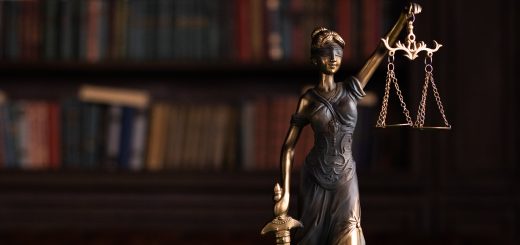Can Government Officials Rely on their Own Officially Induced Errors?
Can government officials rely on their own officially induced errors? The answer is no and for good reason. This topic was recently addressed by the Supreme Court in the case R v Bédard, 2017 SCC 4. Delivering their short judgment from the bench, the Court unanimously agreed that it would seriously undermine the defence of officially induced error to allow government officials, acting in the performance of their duties, to rely on errors of law made by other government officials.
The facts of the case are laid out in the unanimous Quebec Court of Appeal decision, R c Bédard, 2016 QCCA 807, published solely in French. Affirmed by the Supreme Court, the Quebec Court of Appeal removed a lower court’s stay of proceedings for two officers’ assault charges.
Two wildlife and fisheries officers (who were also peace officers) found that Nicolas Murray contravened the Fisheries Act, RSC 1985, c F-14 by catching too many fish. Nicolas Murray had left the scene but the peace officers received his contact information from the person accompanying him.
The officers then phoned Murray requesting to meet with him. Murray was hostile and essentially told the officers that if they wanted to identify him they would need to come to his house with police officers. Having never encountered this situation before, the two officers asked for the advice of their colleague, Sergeant Girard, who was a liaison officer responsible for supporting agents with legal and regulatory advice.
Sergeant Girard gave his colleagues three pieces of advice: first, the officers needed to confirm the offender’s identity in order to lay a charge under the Fisheries Act. Second, all that they needed to do was to go to his home, confirm his identity, and if Murray refused to identify himself to the officers, they could arrest him. The actual scenario Girard ran through with the officers was to knock on the door, explain the offence, tell the suspect it was not a criminal charge, and if he still refused to identify himself, the officers could put him under arrest. If the person claimed that he had nothing to do with it and closed the door, then the officers were instructed to just leave. He also suggested that the peace officers bring police officers with them due to the hostile conversation on the phone.
When the peace officers arrived at Murray’s home, however, they were confronted with an entirely different situation. The accompanying police officers received instructions from their supervisor and were told they could not enter the residence. The police officers waited behind. As the two peace officers approached the house, they were greeted by Julie Asselin, the wife of Nicolas Murray’s father. She invited the officers inside to talk to Nicolas.
The peace officers immediately identified themselves. It rapidly became apparent that Murray was not going to identify himself or cooperate. After this refusal, one of the police officers brought Murray to the ground and was attempted to inform him of his rights while he was being placed under arrest. Murray suddenly appeared cooperative and said he would fetch his I.D. from his room. He went into his room but returned saying that he still would not cooperate. The officers then proceeded to force him to the ground again, in order to arrest him. Nicolas Murray’s father arrived, identified himself, and the officers left, never having completed the arrest.
Nicolas Murray then went to the hospital and documented injuries to both his arms and legs. The officers did not refute that they used force in trying to arrest him.
After the incident, the officers learned that their presence within the house became illegal after Murray asked them to leave because they had no warrant (see R v Couturier, 2004 NBCA 91). The case law is clear that an implied invitation to enter the home may be withdrawn (see R v Petri, 2003 MBCA 1; R v Lotozky, 81 OR (3d) 335). Because the peace officers were conducting an illegal arrest with force, they had in fact committed assault against Nicolas Murray and admitted to it. Interestingly, the Quebec Superior Court issued a stay of proceedings, because the judge viewed Murray’s injuries as stemming from his own behaviour. The peace officers argued that Murray’s injuries were both inevitable and foreseeable when he chose to resist arrest; therefore their actions should not constitute assault. This submission was rejected by the higher courts.
There are six criteria for making out the defence for officially induced error (R v Jorgensen [1995], 4 SCR 55; Lévis (City) v Tétreault; Lévis (City) v 2629-4470 Québec Inc, 2006 SCC 12 at 24):
(1) that an error of law or of mixed law and fact was made;
(2) that the person who committed the act considered the legal consequences of his or her actions;
(3) that the advice obtained came from an appropriate official;
(4) that the advice was reasonable;
(5) that the advice was erroneous; and
(6) that the person relied on the advice in committing the act.
The Quebec Court of Appeal ruled that the sixth criteria—that the person had relied on the advice—had not been met and refused to make a determination about whether the other factors were made out. This decision was made on a technicality: Sergeant Girard had only given advice for a scenario in which the peace officers knocked on the door—they were not given advice as to what they should do if they were invited into the house by a third party.
Meanwhile, the Supreme Court of Canada went further by saying that the third and fourth factors—that the advice obtained came from an appropriate official and that the advice was reasonable—were also not made out.
I believe that this case was correctly decided and I commend the Supreme Court for making a short pronouncement on the issue of governmental reliance on officially induced errors. In Canada, there is a formal separation between the political realm and the judiciary. Therefore, as opposed to disagreeing with government actions altogether, most courts have tended to view resolving issues on technicalities as a safer course of action. The Quebec Court of Appeal took this approach: by refusing to decide the issue of governmental reliance but instead determining that the two officers did not “rely” on the actual advice received because it covered a different situation. However, where the law is unclear, it is certainly within the judicial realm to clarify it. On the same note, it is also within the domain of the court to make sure that the government is not abusing legal defences in order to conduct acts that would otherwise be illegal.
The underlying purpose of the defence of official error is to remedy the unfairness that results when a prudent and diligent person relying on a government authority for advice finds him or herself prosecuted for following that advice. In order for the government—and particularly the justice system—to function effectively in society, there must be a presumed assumption of competence of its government members on areas in their domain. Otherwise, if the government officials themselves cannot be relied on to be an expert, it makes no sense to prevent errors of law as a defence to charges. As the old saying goes, ignorance is not an excuse, which is especially true for areas of the law that fall within the government’s own apparent expertise.







Join the conversation